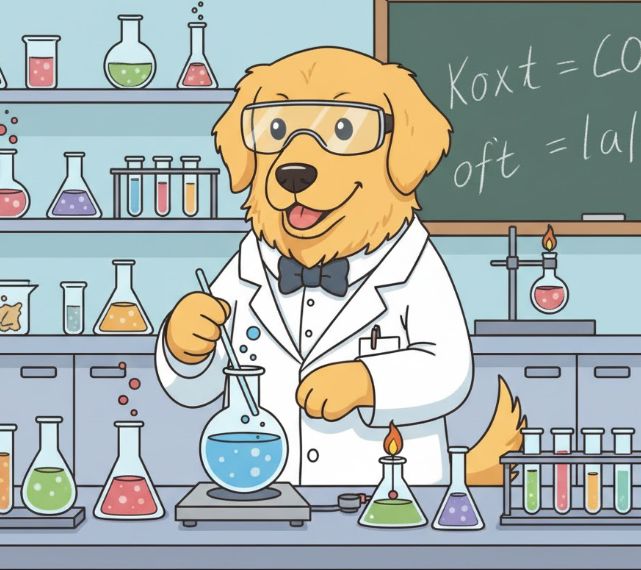
Would You Feed Your Dog a Lab-Grown Steak?
Ever looked at your dog’s dinner and thought, “Yikes, that’s a lot of meat”? Turns out, you’re not alone—and new research shows many pet parents are ready to give Fido a greener, kinder menu makeover.
A 2025 study of 2,639 dog owners from around the world found that while most people still serve up meat-based meals, nearly half are open to trying sustainable dog food made from sources such as cultivated meat, plants, or even insects. Yes, the future of pet food might just come from a lab—or a field of peas.
🌍 The Big Picture: Dogs Eat a Lot—And It Adds Up
There are about 528 million pet dogs worldwide, and feeding them takes a huge environmental toll. Traditional meat-based pet food contributes up to 30% of the total environmental impact of animal agriculture. That means your dog’s dinner might be doing more harm to the planet than your commute.
And it’s not just about carbon pawprints—these foods also rely on industrial farming, which raises animal-welfare and sustainability concerns. That’s why scientists and companies are racing to develop “planet-friendly pet food” that’s safe, balanced, and—most importantly—tail-waggingly tasty.
🦴 The Study That Shook Up the Dog Bowl
Researchers from the Sustainable Pet Food Foundation and several universities surveyed thousands of dog guardians about what they feed their pups and what they’d be willing to try next.
Here’s what they found:
🐾 84% feed traditional meat diets (conventional or raw).
🐾 43% would consider switching to a sustainable alternative.
🐾 Cultivated meat—think lab-grown chicken or beef—was the top choice, winning over 24% of owners.
🐾 Vegetarian (17%), insect-based (16%), and vegan (13%) diets followed close behind.
That’s a major shift from even a few years ago, when the idea of “vegan dog food” raised more eyebrows than tails.
💡 What Makes Pet Parents Say “Yes” (or “No”)
The deciding factor wasn’t price or convenience—it was nutrition. A whopping 84.5% said they’d only consider an alternative if it was proven nutritionally sound.
Translation: pet parents don’t want to experiment with their dog’s health. They’ll go green—but only if the science checks out.
Labels and packaging were also the #1 source of information, beating out even veterinarians and social media. That means clear, honest communication from pet-food brands can make or break a sale.
🧠 The Human Factor: Who’s Most Open to Change?
The study revealed some fascinating patterns:
🐕🦺 Vegan and vegetarian owners were far more likely to choose sustainable options for their dogs (no surprise there).
🎓 Highly educated guardians were more open to innovation.
🐶 Owners of older dogs or those on special medical diets showed greater curiosity about alternatives.
🥩 Raw-food feeders, on the other hand, were the least willing to switch—perhaps reflecting a strong belief in “natural” feeding.
🥗 So… Are These Diets Actually Safe?
Good news: multiple veterinary studies now show that well-formulated vegan or plant-based dog foods can support excellent canine health—sometimes even outperforming conventional diets. The key phrase here is “well-formulated.” Dogs need a complete balance of amino acids, vitamins, and minerals, whether those nutrients come from a cow or a chickpea.
Even professional veterinary groups are coming around. The British Veterinary Association and UK Pet Food have both stated that nutritionally complete vegan diets can be suitable for dogs—if developed with proper research and oversight.
🍔 The Coolest Option on the Menu: Cultivated Meat
Imagine feeding your dog meat that’s real—but no animal ever had to die for it. That’s the promise of cultivated meat, grown directly from animal cells in a lab.
The first batches of cultivated meat dog food hit shelves in London in early 2025. Early adopters say it smells, tastes, and digests just like the real thing (we’ll take their word for it). Scientists hope it will cut emissions and spare billions of farm animals if it catches on.
🐞 Wait… Insect Dog Food?
Yep! High-protein, low-impact, and surprisingly palatable, insect-based diets are already on the market. They’re made from species like black soldier fly larvae, which require far less land and water than cattle or chickens.
The ick factor is real, but so are the benefits. As one pet owner in the study joked, “If my dog can eat poop, he can eat bugs.” Fair point.
💚 The Future of Pet Food Is (Responsibly) Weird
Whether it’s vegan kibbles, fermented microbial proteins, or lab-grown steaks, the next decade will bring more choices than ever for eco-minded pet parents. And as long as the food keeps dogs healthy, happy, and full of zoomies, most of us might not mind if it’s made from peas, fungi, or science.
🐾 Share Your Pet’s Story!
Would you ever try a sustainable dog food—like lab-grown meat or plant-based kibble?
What’s the strangest thing your pup has loved eating? (We’re looking at you, shoe-chewers.)
Drop your thoughts in the comments or tag us with #ThisWeekInPetHealth—we might feature your story in a future post!




